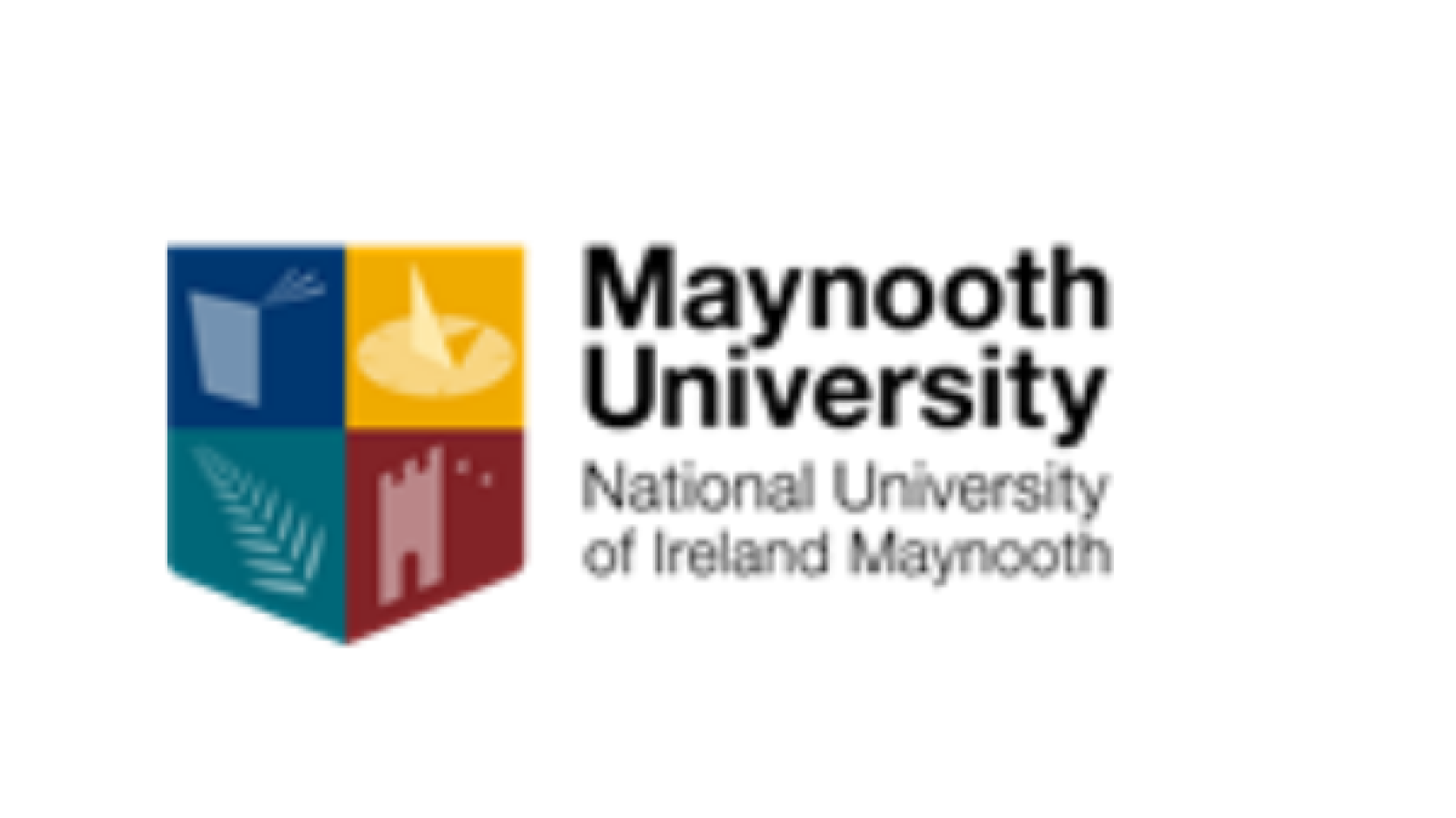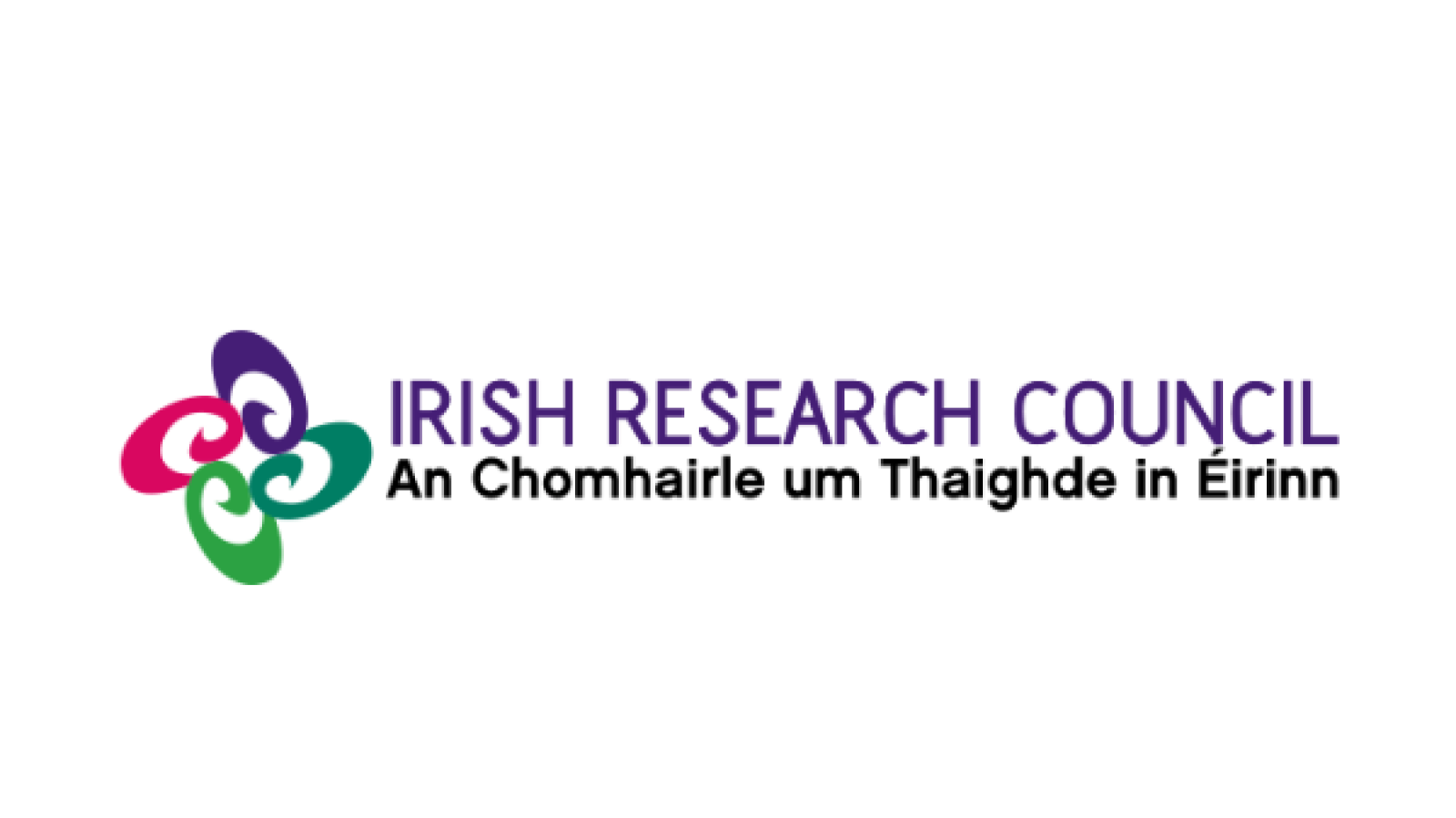What we did
A central part of this project was to seek the views of both community workers and PwMS on their experience of casework. We did this by creating two extensive surveys, which were co-designed with input from a sample of community workers and a number of PwMS who formed part of the MS Ireland participant forum.
We conducted these surveys between April-June 2021 with a total of 11 community workers and 364 people with MS responding, 269 of whom knew their community worker. PwMS surveyed varied in their gender (female 71%; male 29%), age (20-82 years; average age = 52 years), location (urban 52%; rural 48%), and type of MS diagnosed with (relapsing remitting MS 65%; primary progressive MS 15%; secondary progressive MS 14%).
While a lot of interesting information was gathered from these surveys, we present just a small snapshot of these findings below. If you would like more detailed findings, these can be made available by contacting Dr Rebecca Maguire at rebecca.maguire@mu.ie
What we found
1.Understanding the needs of people with MS is important
Community workers agreed that casework should focus on helping to meet the needs of service users (i.e., PwMS). We found that a variety of different needs may be experienced by PwMS, captured using an adapted framework of needs originally identified by Kinyanjui et al. (2018)[1].
Specifically, we found that PwMS have 12 core needs, summarised in the figure below.
[1] Kinyanjui, B., McDaniels, B., Frain, M., Bishop, M., Chiu, C. Y., Lee, B., & Tiro, L. (2018). Healthcare and rehabilitation needs of individuals with multiple sclerosis. Contemporary Research in Disability and Rehabilitation, 1(1), 2-17.
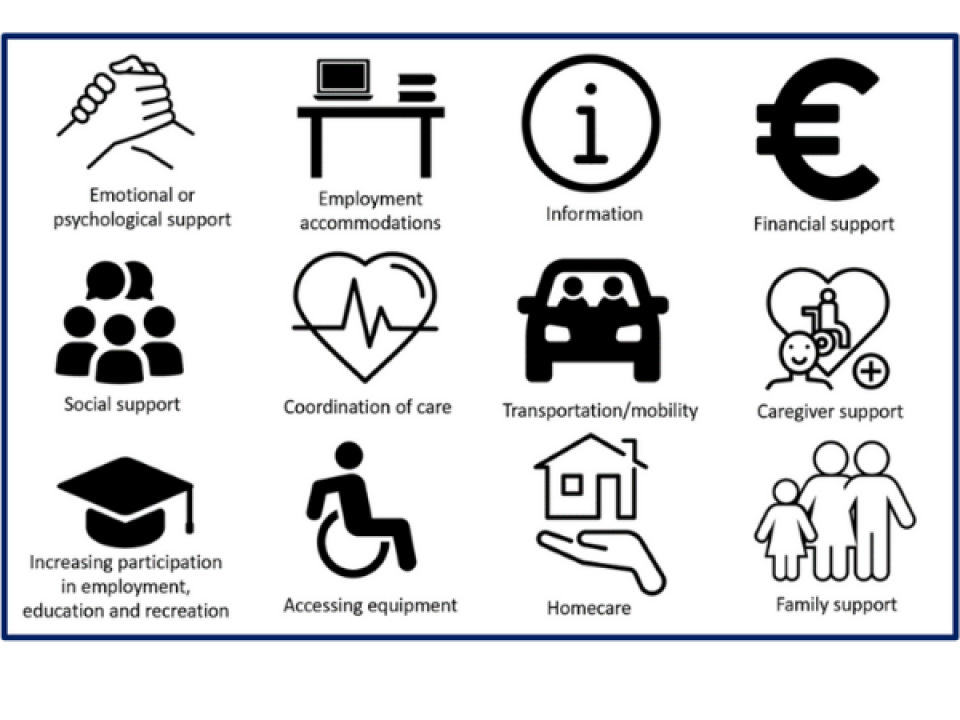
Needs experienced by people with MS
Both PwMS and community workers felt that some of these needs were more common than others, including needs for information, coordination of care, and emotional or psychological support. However, our results found that no two people with MS are the same, and that everyone may have different needs depending on their individual circumstances. For instance, some may have a pressing need for equipment or financial support, while others may experience a greater need for social or psychological support.
2.Community workers are well-placed to meet many needs of PwMS
It was clear from our survey that community workers help to meet many of the needs detailed above. Although there were some areas for improvement indicated in the survey responses, generally our participants appreciated the support they received by community workers and gave a number of examples of how their needs had been met.
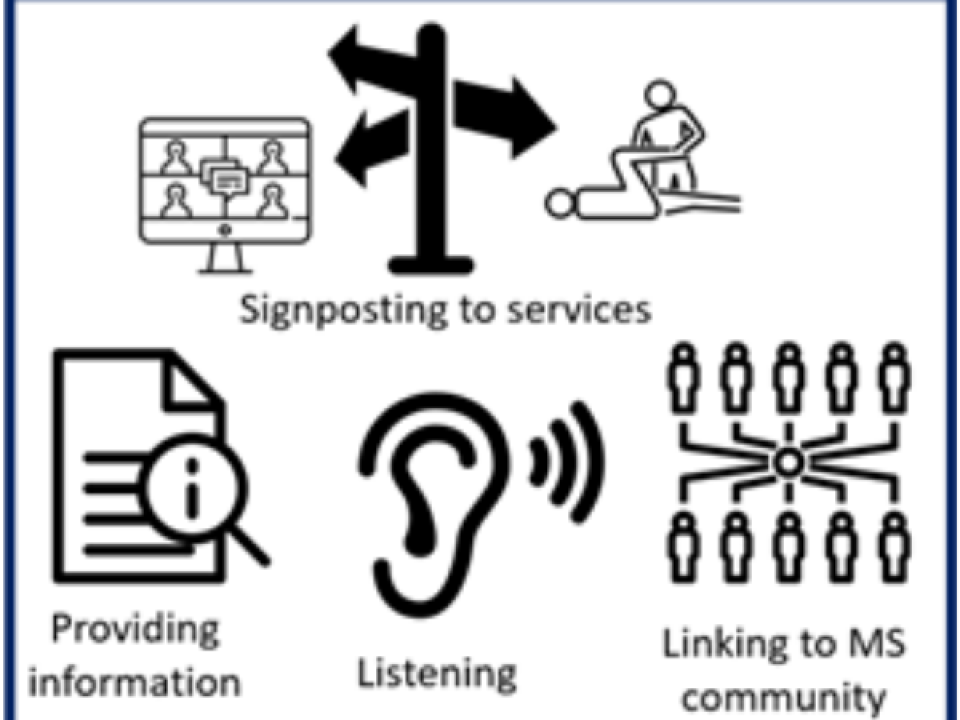
Specifically, our results suggest that community workers help to meet needs of PwMS in four main ways: (1) signposting to services, both internal and external to MS Ireland, (2) providing information, (3) listening, which enables an important source of psychological support, and (4) facilitating links with the wider MS community, which in turn enables social support.
There was also good agreement between both community workers and PwMS in relation to the needs that were best met by community work (e.g., needs for information, coordination of care, and emotional/psychological support), and those which were more difficult to meet (e.g., needs for employment accommodations, caregiver support and homecare). In many cases, meeting these needs were outside the control of MS Ireland, with many respondents expressing dissatisfaction with the wider health system in Ireland.
3.There are challenges to evaluating casework
While our survey results suggests that community workers can help to meet many of the needs of PwMS, a number of challenges clearly exist in evaluating casework. Notably, community workers may not always be able to document the outcomes of casework (i.e., whether the needs of service users are met). This may be because of a lack of communication with other service providers when a referral is made to an external service, such as physiotherapy or occupational therapy for example. It may also be simply due to a lack of follow up with the PwMS themselves.
Furthermore, some PwMS expressed concerns over privacy, and community workers also highlighted how not all service users may be able to provide detailed information if, for example, they were vulnerable, had problems with cognition, or lacked digital skills.
However, most survey respondents felt that collecting more information from PwMS would be beneficial, which would be an important action to take when evaluating casework activities.
4.Community work has a number of other positive impacts
Aside from helping to meet the needs of PwMS, our participants provided a number of examples of the positive impacts that their community workers had on them.
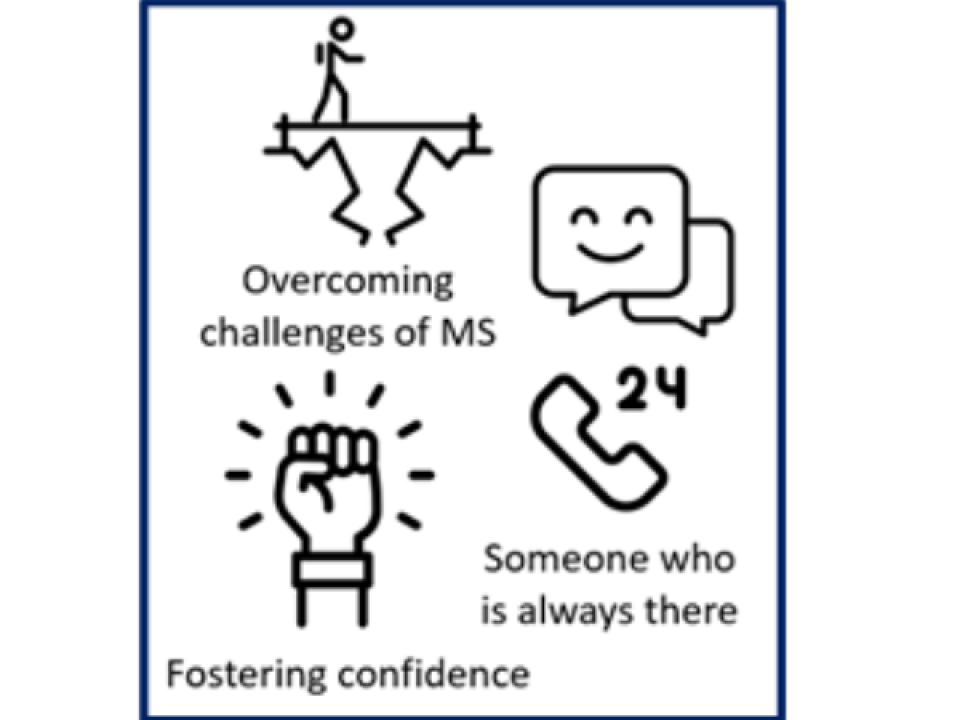
Positive impacts included an appreciation of how their community worker helped them to overcome the various challenges of MS, for example when they were newly diagnosed, or at times of crisis. A number also noted how their community worker helped to fostered a sense of confidence and positive coping with MS. Many participants also expressed appreciation in knowing that their community worker was always there if they needed them.
Our conclusions
Our results suggest that there is a lot of potential for the evaluation of casework at MS Ireland. We suggest that capturing information on the needs of PwMS is important, before considering which casework activities would be the most useful in helping to address these needs. Importantly, any casework activities should be documented and followed up when possible to establish whether service user needs have been addressed.
A provisional framework for this process is presented below.
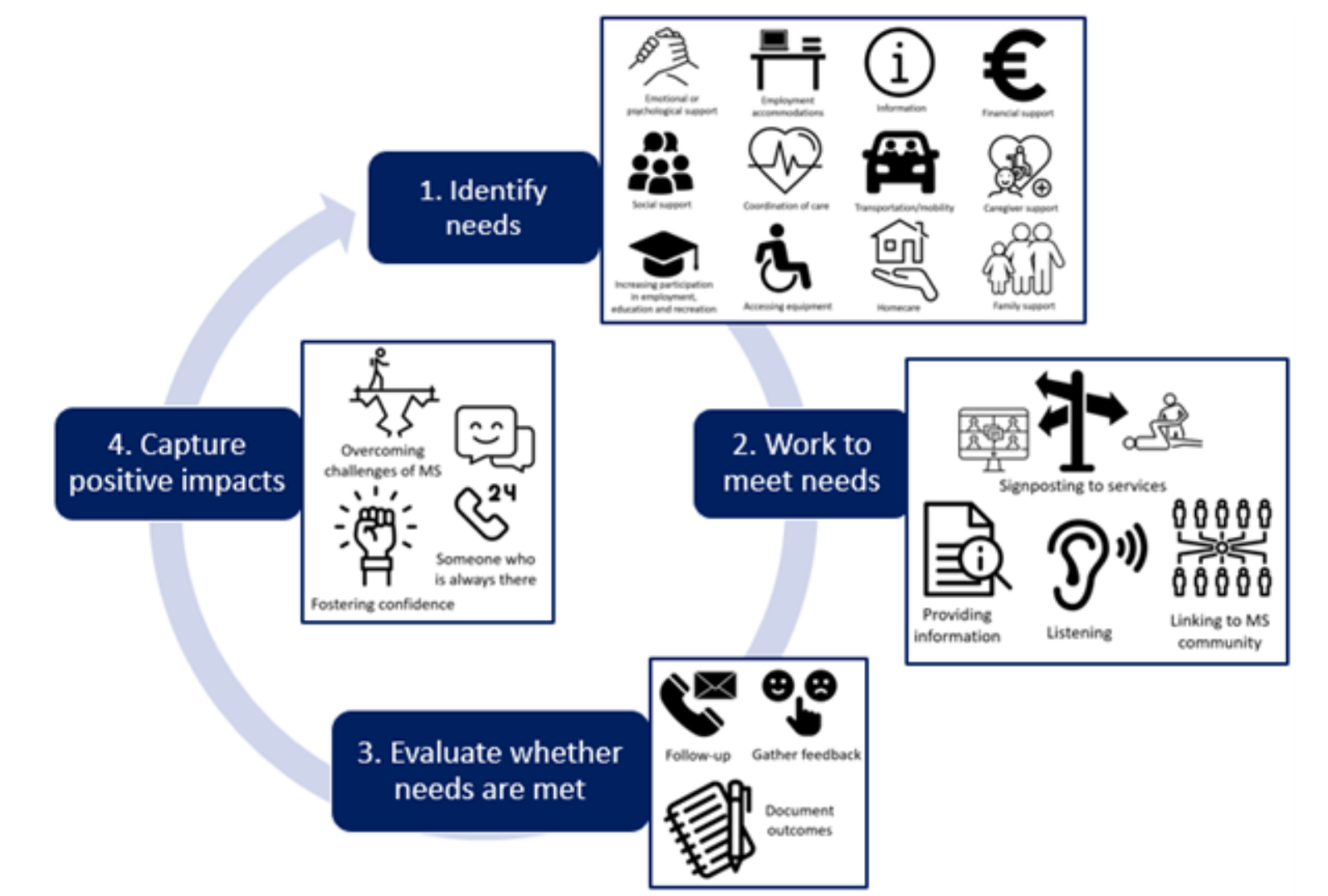
These recommendations have been presented to MS Ireland and are now being actively considered by the organisation with a view to help improve current casework evaluation practices.
If you have any feedback on the summary of this research, or would like to know more, please contact rebecca.maguire@mu.ie
Acknowledgements: This was research was supported by a grant from the Irish Research Council, New Foundations Scheme.
Thanks to all the staff at MS Ireland, in particular Aidan Larkin, Prof. Susan Coote, and Aoife Kirwan for their input into this project. Thanks also to all the community workers who guided the study design, as well as the MS Ireland participant panel who provided important perspectives as people with MS.
Principal Investigator: Dr Rebecca Maguire
Research assistants: Jennifer Deane-King and Austin Fahy
Department of Psychology, Maynooth University
